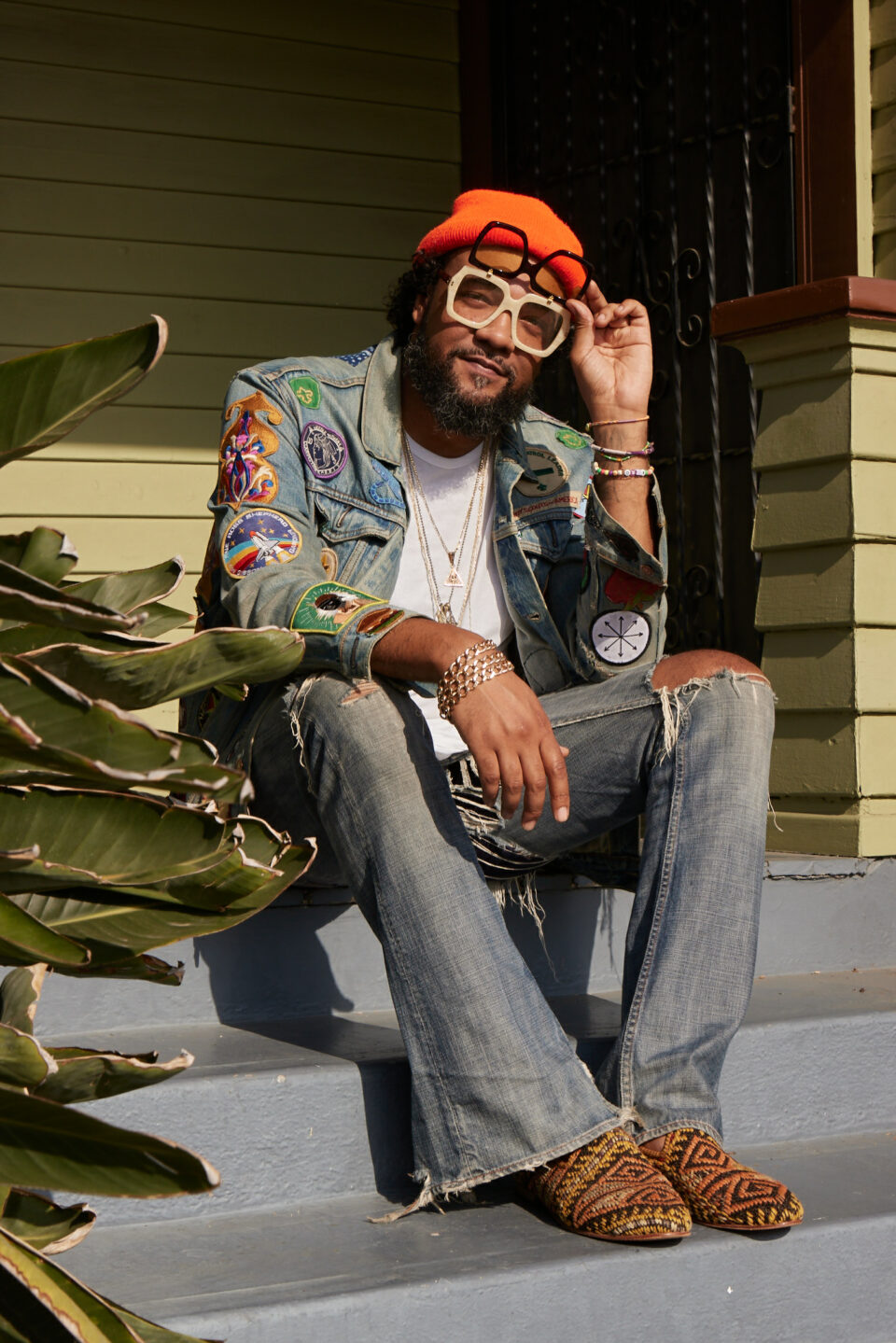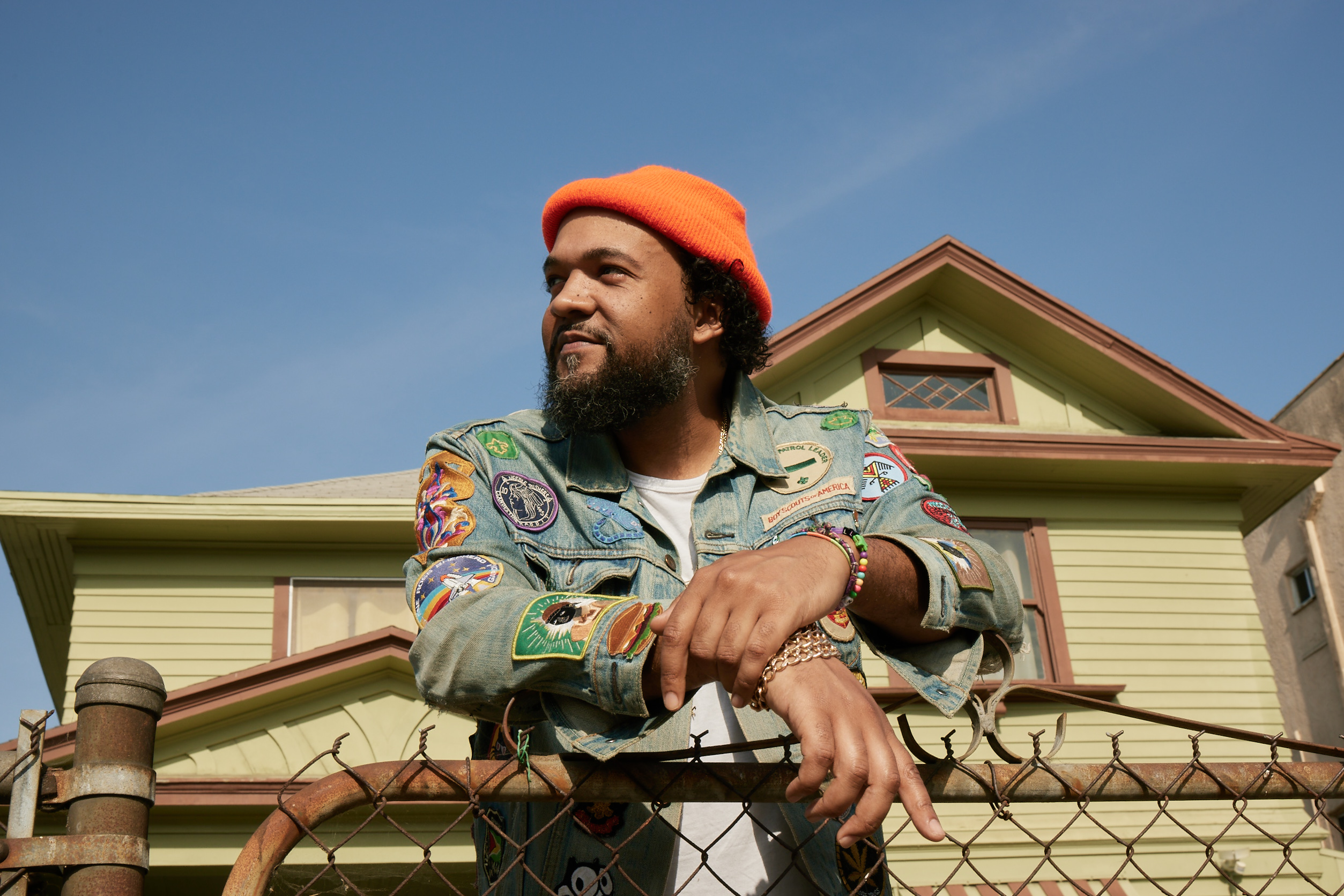After finishing his undergrad at Wesleyan University, Jahi Sundance felt he had a choice to make. He was living in New York City in the early 2000s and needed to focus on either the saxophone, which he studied as a kid, or on his DJ career that was beginning to take off. “DJing was the choice because I grew up in the classic era of hip-hop and this is what I love,” he says today. “I was like, ‘This is what I’m gonna do, so let me figure this out.’”
As he started mapping his next moves, Jahi remembered hearing a story about DJ Premier where the iconic producer recalled how he was only a DJ early in his career. When Premier met Guru, his partner in the rap duo Gang Starr, he challenged himself to become a producer, to push himself to a new and different arena. That memory came in handy when Meshell Ndegeocello came to watch Jahi DJ a gig at Hotel Chelsea in Manhattan. Jahi’s older brother Gene Lake had been the drummer of Ndegeocello’s band for several years, so Jahi had known the singer since he was 13. Impressed with the set, Ndegeocello asked Jahi to open a handful of local shows for her. Jahi’s sets went over so well that Ndegeocello asked him to be her opening act. Jahi had his mind fixated on something bigger and asked to perform as part of her set. Ndegeocello agreed.
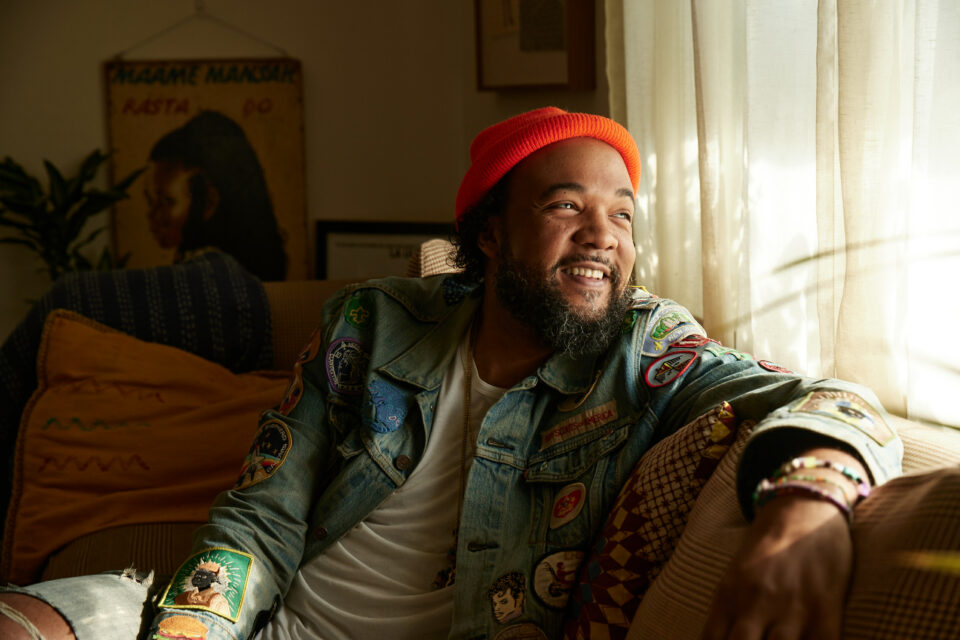
At this point, bands with DJs were confining their turntablists’ scratching to specific portions of a show. Jahi had grander ideas, thanks in part to DJ Premier’s lead. “There was a whole period where I was plugging up wah-wah pedals, guitar rack pedal boards, and all kinds of other stuff to the turntables to try to get a new angle from what I had seen as far as the DJs-with-the-band approach,” he says. “I started to come up with this style where I would involve these pieces of gear that would allow me to create emotional tones, colors, emotional context, and presence that Meshell allowed me to do on stage.”
“I started to come up with this style where I would involve these pieces of gear that would allow me to create emotional tones, colors, emotional context, and presence.”
With an overabundance of ideas and experience to draw from, Jahi has since created a sonic experience that draws from any number of sources, including snippets of conversations he has with friends, samples of songs, and YouTube clips, all while pulling from his vast knowledge of breaks and music history. “I experimented with it until I came into this style,” he says. “Coming into that style was what really allowed me to then flourish and get the gigs that I have now and continue to work with some of the most creative and talented music people who exist, who ask me to be part of their project because they recognize this layer that I'm adding to the music, which is not traditional for a DJ, the context that I’m putting in there.”
Jahi was influenced by the people he grew up around who were striving for the next layer of creativity, including his father Oliver Lake, an accomplished saxophonist, and his mother, a designer. “This is 100 percent informed by that experience,” he says. “When I was born and my mom brought me home from the hospital, my dad was having a rehearsal with the World Saxophone Quartet in the living room. When my mom walked me in, they wrote a song for me in that moment. That's been my life. I’m 100 percent influenced by the presence of my dad and his friends who were trying to advance creative music into a whole new place. I picked that torch up as much as I could because that was my influence, seeing people who were completely free.”
“Scratching is a tool, but I have to get outside of that to figure out how to use this for something that’s gonna have a deeper emotional context.”
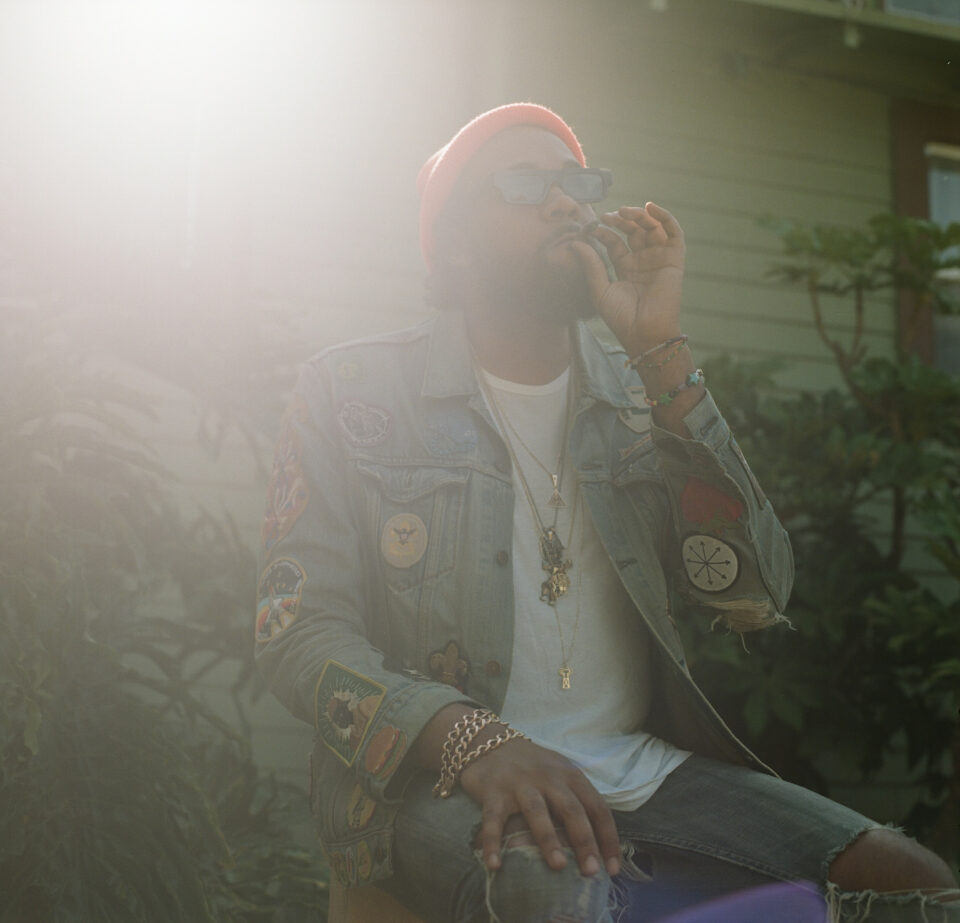
This group of people included master drummer Mor Thiam, whose son is Akon, and Olu Dara, Nas’ father. “They were striving to go beyond the rules of jazz into another place, another level of jazz, which is where every single one of the great jazz musicians ended their career,” Jahi says. “They were like, ‘I’ve played jazz, so I have to break through and now play another level of music. I’m trying to get closer to the spirit, as close as I can get.’ That’s what Coltrane and Miles were trying to get to—when we get out of the scholarly period of their careers and into the spiritual period of their careers, they were trying to break out and use their instrument to communicate directly with the spirit. So I was like, ‘How can I do that on the turntables?’ For me, it was outside of scratching. Scratching is a tool, but I have to get outside of that to figure out how to use this for something that’s gonna have a deeper emotional context.”
“I’m 100 percent influenced by the presence of my dad and his friends who were trying to advance creative music into a whole new place. I picked that torch up as much as I could because that was my influence, seeing people who were completely free.”
When he DJed as part of Robert Glasper’s show at Walt Disney Hall with the LA Philharmonic, for instance, Jahi moved the crowd with a sobering look at police brutality that used audio of 911 calls and famous orators from the Black experience in America mixed with sound effects. Some of those in attendance were moved to tears by Jahi’s presentation. “What I’m doing is definitely like a whole new way of expressing yourself on this instrument,” he says. “I’m able to create things and perform in a way that’s groundbreaking as a DJ.”
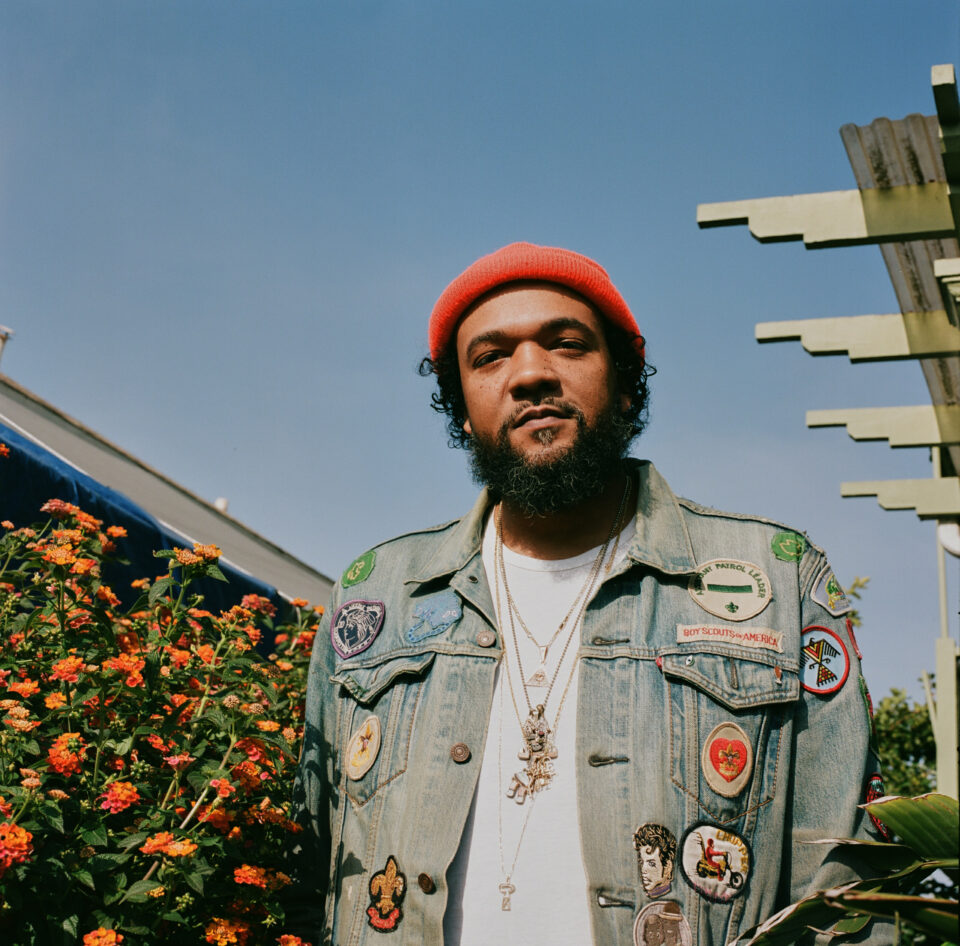
As word spreads about Jahi’s distinctive presentations, he’s getting an increasing number of DMs from people asking for sample packs. In addition to performing, he produced “Everybody Love” on Robert Glasper’s Black Radio III LP and played saxophone on the score for the acclaimed HBO series Winning Time. He’s prepping his new solo project and gearing up for the release of his Moon Medicine group, which is slated to drop its next LP on Jack White’s Third Man Records LP in September. It all adds up to a fulfilling career.
“I have a lot of friends who are DJs in New York who made a lot more money than I did in their twenties, and are still making more money than me, and will probably always make more money than me,” he says before laughing. “But they’re complaining about their gigs 24/7, and I’m not. Ever. My gigs are amazing. It’s complete freedom when I’m on stage with Glasper and all these people. I get complete and total creative freedom to express myself as a part of the tune, as a part of whatever’s happening in that moment. My friends are beholden to the whims of the bottle buyers and the clubs that they work at now. Because if somebody comes in and spends $10,000, you have to play three songs that they want to hear. When you start to turn into that jukebox level, they might be paying you, but you ain’t happy.” FL
